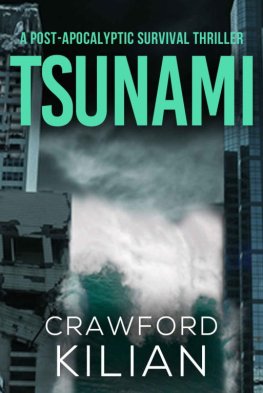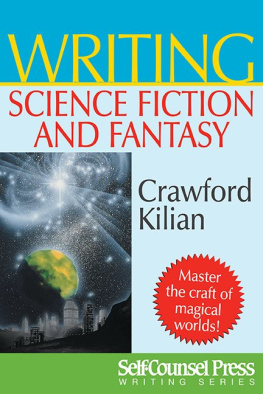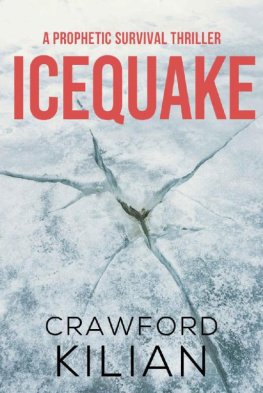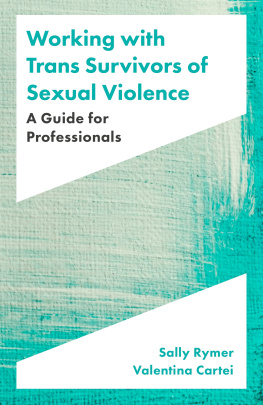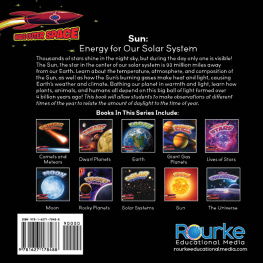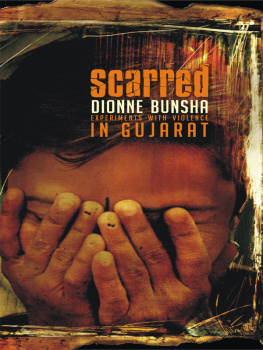Three hundred and three metres, Don Kennard said into the microphone. Im about two metres above the bottom. Visibility is fair.
Copy. The radio operators voice came fuzzily through the loudspeaker of the submersibles radio.
Ill retrieve the first core here, and then follow the current across Butler Canyon before the next core.
Very good.
Don shifted on the narrow couch, grateful that a tall man had designed it. Lying flat on his belly, he was still fairly comfortable; after a few more hours he would be stiff and clumsy. The cabin of the submersible, though designed to hold two men, was barely wider than a double bed. Its curving ceiling was only a metre above the couches. The bulkheads, painted black to reduce reflection on the portholes, were beaded with moisture: humidity inside the cabin was close to one hundred per cent, and the temperature was a cold 12 Celsius.
As usual, Don was dressed for the dive in jeans and a black wool turtleneck sweater, with a watch cap pulled down over his thick brown hair. He was rawboned, not very heavy for his height, but with powerful shoulders and arms. His face was long and a little heavy-jawed; like all the men in his family, he had a slightly protruding lower lip. He was clean-shaven and, like most people these days, sunburned, except for a pale stripe around the eyes. His complexion, reddened and coarsened, made him look older than his actual age of thirty-six.
Don looked through one of the portholes at the grey sediment illuminated by the submersibles floodlights and gripped the handle of the external manipulator.
The mechanical arm reached out and down, and poised for a moment above the mud. The submersible tilted a little; it was too buoyant to be really stable, which had earned it the ironic name of Plummet. Instability, though, had its advantages: as he drove the core tube into the mud, Don lunged forward on his couch. Plummet tipped, forcing in the tube a little deeper. A cloud of fine particles puffed up, mixing with the yellowish mist of dead phytoplankton in the water. The marine biologists were really interested in only the top millimetre of sediment, but a long core would give them a better data base.
He pulled the core tube free and manoeuvred it into the lazy-susan rack mounted outside the forward porthole, just below the wet compass.
First core secured. Moving on. Can you give me a bearing?
Bearing one-six-seven at one knot.
One-six-seven. Copy.
He looked sourly at the useless wet compass. Three weeks ago, the earths magnetic field had abruptly disappeared after fading for several months. Its loss made navigation underwater a difficult job.
That, of course, was the least of the problems. Since the previous summer, solar flares had been erupting with unusual violence and frequency on the surface of the sun.
Each flare had bombarded the earths ozone layer, forming nitrogen oxides that quickly broke up the triple-oxygen molecules of the ozone layer. Loss of the magnetic field had accelerated the process. With the ozone reduced by at least fifty per cent, ultraviolet radiation was penetrating the atmosphere.
The suns normal output of UV, sharply increased by the UV in the flares, was reaching the surface of the earth. It burned into the cells of plants and animals; crops were withering, and livestock was going blind. Humans could scarcely venture outside in daylight without eye protection, and whites needed sunblock cream on exposed skin, or they would start to burn in less than a minute.
The effects on the upper layers of the sea were, perhaps, even more threatening: phytoplankton, the microscopic marine plants that formed the basis of the oceans food web, were dying off under the UV onslaught. The core Don had just taken would help to determine the rate at which different species of plankton were affected.
The flares had also smashed the ionosphere, blacking out long-range radio, and had burned out most communications satellites. Electromagnetic pulses, like those associated with high-altitude nuclear explosions, induced voltage surges in power networks; whole continents blacked out. Electronic devices behaved with an eerie unreliability, sometimes working beautifully and sometimes burning out. The earths electric field became highly charged, and caused violent thunderstorms. The ozone had trapped some of the heat reflected from the earths surface; that heat now escaped into space, so the stratosphere cooled and weather patterns changed.
That, of course, was outside his scientific domain. His wife Kirstie knew far more than he about the impact of the flares on the weather. But she and her fellow climatologists at Berkeley were going crazy trying to make sense out of events. For example, Ultramarine, the research vessel that was Plummets mother ship, was being battered in the latest of a series of storms which should have stayed in the Gulf of Alaska. Instead, a branch of the circumpolar jet stream had moved far south, dragging the storms onto the California coast. The winter had been one of heavy rainfall on the coast and snowfall in the Sierras. Flooding and mudslides had thrown whole cities into chaos. Don, a physical oceanographer, preferred the peace and quiet of the continental shelf to the endless harassments of life on the surface.
Those harassments, he reflected, werent limited just to the weather. On the surface he had to contend with people who did not interest him, whose problems and desires did not stir his sympathy. Solitude suited him; even Kirstie, involved in her own career, left him comfortably alone. In ten years of marriage they had spent much of their time apart: he on diving expeditions, she on research projects, in five countries on three continents. Their last six months in Berkeley was one of the longest times they had lived in one place, and together; Don was even getting to know some of his colleagues at the Pacific Institute of Oceanography. But people and organizations were too transient to care about or too dangerous to care about, he admitted to himself. Once you invested your feelings in them, they tried to take you over, to tyrannize you. His grandfather Geordie had done it to Dons father, and then to Don and his brother Steve. His father had escaped only by dying of a heart attack; the grandsons had escaped into science and distance. For Steve, what was important was seismology in the Antarctic; for Don, it was cruising like this, alone through the cold darkness three hundred metres down.
The floodlights abruptly shone on foggy emptiness.
Im over Butler Canyon, he said. The current in the canyon may push me a little west of south until I get across.
Copy.
Don knew the canyon fairly well. The continental shelf off California was a network of such canyons; many of them were drowned rivers, relics of the last ice age when sea level had been much lower. This canyon was small, less than a kilometre wide and about fifty long. After ten thousand years of sedimentation, mud and silt lay almost a kilometre thick above its bedrock, so that it was only one to two hundred metres below the average level of the continental shelf.
Somewhere out in the middle of the canyon, Plummet rose suddenly, nose up; the yellow mist of dead plankton thickened and swirled. Then the submersible shook and began to drop.
What the hell was that? he shouted.
What was what? the operator asked. Hey, Don, are you descending?
I sure seem to be. Just got a real jolt, up and down again. Im down to three-twenty metres.
Are all your systems functioning?
Yes.
Earthquake? Sandfall? Whatever it had been, Plummets

